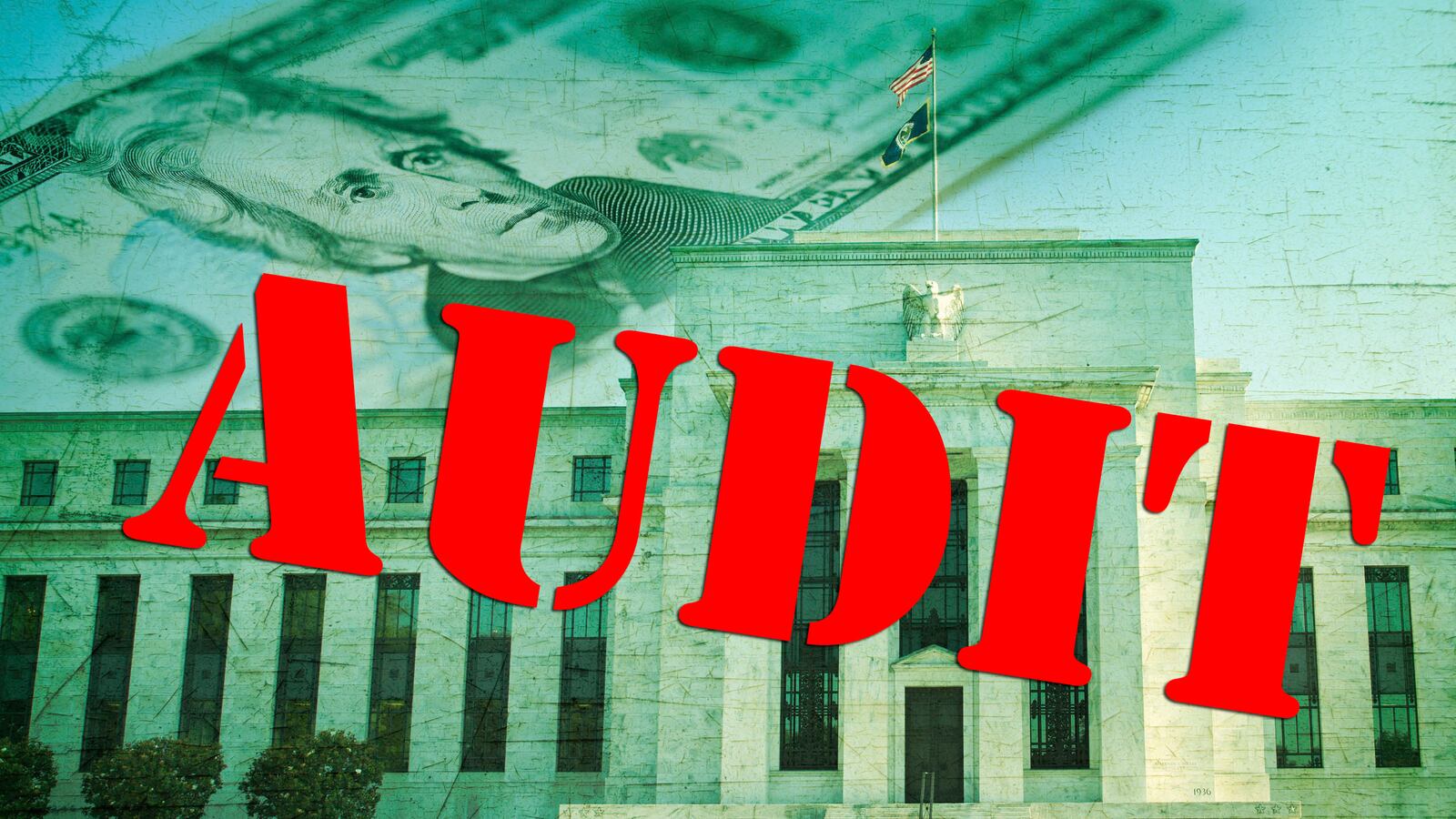If you want to get a sense of just how incredibly powerful the Federal Reserve really is, forget about interest rates, reserve requirements, or even the ways in which a random nose-pick or burp by Janet Yellin during lunch at a Jackson Hole delicatessen might send markets soaring or crashing.
Instead, think about this: In an age utterly bereft of bipartisanship, auditing the nation’s central bank is one of the few issues on which Rand Paul and Elizabeth Warren agree. So does everyone else. Polls consistently show anywhere between 70 percent and 80 percent of Americans supporting an audit that would not just open the Fed’s ledger books but peer into exactly how monetary policy gets set.
Just a couple of weeks ago, the House of Representatives passed The Federal Reserve Transparency Act by an overwhelming vote of 333-92; a majority of House Democrats voted for an audit while just one Republican voted against the bill.
Yet despite overwhelming public and congressional support for an audit, it’s just not going to happen.
What is it about the Fed that inspires such solidarity among its critics? Ever since its creation during the Woodrow Wilson era, it’s been a favorite target of everyone from right-wing conspiracists who fear the Fed is simply another cog in an international Jewish banking conspiracy to left-wing populists who see it as both a cause and effect of globalized capital. Because it controls the money supply of the planet’s biggest economy and because it operates so opaquely, it’s an obvious place to project all sorts of anxieties about large, impersonal forces beyond our reach that sharply affect, if not actually control, virtually all aspects of our daily lives.
But one needn’t wade into the fever swamps of conspiracy to see the Fed as an inherently problematic institution. The central bank is explicitly tasked with the fundamentally incompatible duties of conducting stable monetary policy, promoting full employment, acting as a lender of last resort, and regulating the banks it works with. Good luck with all that. Also, while it’s technically independent, the federal government exerts massive political pressure on the Fed and appoints its chair and board of governors.
As The Washington Post’s Robert J. Samuelson documented in his 2008 book The Great Inflation and Its Aftermath, the Fed’s successful tactics to curb inflation in the early 1980s necessarily meant increased unemployment as interest rates spiked upwards, making it tougher for producers and consumers to spend. And while President Reagan and Fed Chair Paul Volcker technically acted independently of one another, there’s no question that the two unofficially coordinated their policy actions—as did Presidents Bush and Obama with Ben Bernanke during the Great Recession.
In 2011, a Government Accountability Office (PDF) audit of Fed activities during 2008 found that the central bank had made previously unknown loans to various financial institutions while also waiving any number of conflict-of-interest regulations and other legal niceties. Leftist Vermont Sen. Bernie Sanders, who had called for the audit, grossly overstated the actual amount of dollars put into play, but his main point about the Fed bailouts still holds: “This is a clear case of socialism for the rich and rugged, you’re-on-your-own individualism for everyone else.”
More recently, Pro Publica’s bombshell story about funny business at the Federal Reserve Bank of New York will only increase calls for a truly wide-ranging, independent audit.
Bank examiner Carmen Segarra, who the Fed tasked with monitoring Goldman Sachs in an effort to learn how and why the 2008 financial crisis unfolded, was fired from her post after seven months. She walked away with 46 hours of secretly recorded conversations and other documentation amounting to an “unignorable truth,” in the words of journalist Michael Lewis: that one of America’s biggest investment banks had co-opted its supposed overseer.
“You sort of knew that the regulators were more or less controlled by the banks,” Lewis wrote. “Now you know.”
The Fed’s operational furtiveness—there’s a reason why William Greider titled his 1989 history of the bank Secrets of the Temple—is hugely at odds with growing interest in transparency in all aspects of contemporary life. How is it that we can know more about the coffee beans we buy at the grocery store than how our money gets made?
“Trust in all branches of federal government at or near record lows,” reports Gallup. Who can blame us? The entire 21st century has been a clusterfuck cloaked in official secrecy. Trust us, the Bush administration said, about weapons of mass destruction and its ability to keep taxes and spending low. Trust us, the Obama administration said, about spying on Americans and restarting the economy through “shovel-ready” programs. Does anyone wonder why only 43 percent of Americans have a “great deal” or “fair amount” of trust in the executive branch? And just 28 percent in the legislative branch?
In announcing the results of the successful House vote to finally take a look at the inner workings of the Fed, Rep. Paul Broun, the Republican sponsor of the bill, said that it’s passage had brought “us one step closer towards bringing much-needed transparency to our nation’s monetary policy.”
Yeah, not so much. Despite such a lopsided vote in the House, the measure will die in the Senate. It wasn’t voted on before the pre-election recess, and Majority Leader Harry Reid will refuse to bring the matter up for a vote before the current congressional term expires in January. Irony alert: Reid himself co-sponsored bills in the ’90s calling for Fed audits.
Reid hasn’t explained exactly why he won’t allow a vote on the bill, which has 30 co-sponsors. He’s keeping his reasons secret, which means that the Fed’s secrets are safe for at least a little while longer. And that trust in government will keep shrinking, just like the value of a dollar has over the life of the Federal Reserve.






